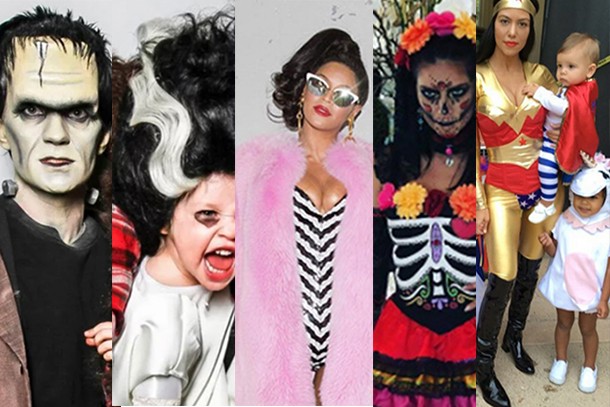
The postmodern era brings together the best of both modern and ancient achievements. It positions them both to compete against each other and to be mutually beneficial. While the knowledge of culture is positioned to compete with the activity of the finite knower, it is also able to benefit from the knowledge of nature.
Lyotard
Lyotard developed a philosophy of postmodernism which describes the contemporary world as postmodern and characterized it as a time of fragmentation and pluralism. In other words, a time where everything is changing at once, with no one concept ruling the roost and no one person having a monopoly on knowledge, is characteristic of the postmodern world.

Latour
Bruno Latour’s postmodernism philosophical perspective challenges the traditional understandings of knowledge. Latour says scientific facts are human-generated products and should not considered absolutes.
Holderlin
Johann Christian Friedrich Holderlin, a prominent figure in German romantic literature, is the most famous. His contributions as a poet were widely recognized in the first half century of the 20th century. His thought also influenced Martin Heidegger's work. It has been a while since his contribution to philosophy was recognized. However, his thinking is fundamental to understanding German Idealism. It speaks to the philosophical issues that face our time.
Nietzsche
Nietzsche's postmodernism theory involves the notion that everything is re-constructed, including the meaning of a text. He rejects God as a Christian God and insists that meaning must always change according to the current context. Nietzsche posits that the will to power is a fundamental moral principle and must be interpreted within this context.
Nietzschean method of genealogy
As a principle of interpretation, the Nietzschean method for genealogy in postmodernism philosophy could be considered a critical principle. It requires placing an individual within a larger framework and addressing the central philosophical problem. The term "genealogy", or unity of thought, is a synonym for coherence.

Nietzschean concept of eternal return
Nietzsche's theory of eternity is a radical departure from the Christian conception of eternity. Instead of assuming that the soul will return to God, Nietzsche views the universe in an eternal play that is similar to the cosmic child. The horizons of time are full of events that are neither temporary nor permanent, and they do not have a preference for the outcome. This philosophical foundation is Nietzsche’s eternal return concept.
FAQ
Are Tik Tok and its pop culture?
The answer is Yes This is not only for teenagers. These short videos can be shared with friends and family to share their emotions, thoughts, and life moments.
Every day, the app is used by over 200,000,000 people worldwide. This number is growing by millions every day.
TikTok gives brands the opportunity to build meaningful relationships and connect with customers through this amazing platform.
TikTok is also home for many influencers who have built huge followings. These creators create original content that engages audiences across the globe.
Don't wait! Here are four ways you can take advantage of this trend.
-
Make Viral Content
-
Engage Influencers
-
Use Visuals Effectively
-
Creativity with Your Audience
Why is pop music so popular
Pop music is fun because it is entertaining! Pop music makes you feel happy, and it gives you a lot of freedom. People listen to pop music and are free to think about anything but themselves. They don't need to worry about what others think. Pop music is so beloved because of this. People enjoy songs that make their heart sing. Turn on the radio to hear upbeat music if you're feeling low. You may even find yourself singing along. Pop music has been so popular over the years because of this.
What can pop culture teach us about ourselves?
Our society today places more importance on material goods than all other things. This is especially true of young people. They spend hours per day looking at screens. They watch movies, play video games, and surf the web. All of this distracts them from focusing on school work. As a consequence, they often fail classes.
In today's world, everyone wants to be accepted. That means being popular. Popularity depends on having money, clothes, and other possessions. This causes some people to do things they don't like.
Technology has made us dependent. The internet has made it possible to access all sorts of information. However, not all information is accurate. Many false rumors circulate on the Internet. These rumors spread quickly because people share them on social media sites. It is easy to share something without verifying its truth.
People have lost their ability for critical thinking. They believe whatever they read on the Internet. They believe what is written in magazines and on television. They stop thinking for their own sake. Instead, they follow the crowd.
Relying on others for information can cause us to lose control of our lives. Pop culture encourages us to rely on others. It also makes us lazy. We don't always see the truth, but it is there.
How did pop culture develop?
Technology was key to the rise of popular culture. It developed as people became increasingly mobile. The radio revolutionized mass communication. This enabled the invention of the radio, which led to the development of television. The internet was born from this.
People started using computers at home and were exposed to computer games. These games were first played on consoles such as the Nintendo Wii or Sony Playstation 3. They are now becoming available for free online. Many youngsters now choose to play videogames over watching TV.
Video games are very popular with children and teenagers. You can play alone or with other people via the internet. Call Of Duty, Grand Theft Auto and other violent games can be dangerous. Some parents are worried about their children playing these video games. Some people find it thrilling to see what happens when a character is killed.
Music videos are another way pop culture influences youth. They give information about current trends and celebrities. Many young people love to watch them. It is clear that music plays a significant role in our lives.
Many artists use special effects in music videos to enhance their songs. Rappers may use makeup and wigs to make themselves more appealing. To show off their bodies, some musicians are willing to put themselves through extreme physical hardships. Many singers perform while wearing costumes.
Today, there's so much choice in music. You can listen any music you wish. But this isn't always good news. Music can sometimes encourage violence. Some lyrics or words can cause people to get mad. Sometimes, they even commit criminal acts.
50 Cent recently experienced this. He sang Get Rich Or Die Trying. It contains the line "I'm gonna shoot a momfucker down / Although I don't understand why but I might." People thought this meant that he would commit suicide. He was threatened by a man who called him. 50 Cent updated the lyrics. Now it only says: "I'll shoot a bitch down/ I don't know why but I just may."
Popular culture is essential. We must understand its effects on us. We won't be able protect ourselves from its negative effects if we don't.
What is the origin of pop music?
It was an accident. It was an accident. The first song was accidentally written when someone knocked over the piano while playing on New Year's Eve 1920.
The recording company liked what they heard and decided to release it as a single.
This was the first ever single to become a hit.
Pop music is today the most popular form musical entertainment.
What is music's popular culture?
Popular Music Culture takes many forms.
Music and lyrics are the main characteristics of popular music culture. It also includes visual media, like television, fashion, advertising and film, that have an impact on the careers of artists and public perception.
It's also how fans interact and support their favorite artists.
The rise of superstars - musicians who have made a name for themselves - is one aspect of popular music culture.
These icons transcend many genres and have become cultural icons. Their popularity has also influenced the development of popular music.
The popular music culture also includes:
* The rise of recording technology -- from acoustic instruments and electric guitars to microphones and microphones.
* The inventions and use of the radio and record player;
* The birth of the rock 'n roll era;
* The introduction of television and film
* The advent of MTV and VH1;
* The creation and use of the internet.
What is pop-media culture?
Pop culture is all around. Pop culture is everywhere. It's all around us 24 hours a day. Pop culture influences everything, from clothes to music and language to politics and religion. What then is pop culture? Wikipedia states that "Popular culture" refers specifically to ideas and products intended for mass consumption. Most people believe that pop culture refers to movies, television, music, fashion, or other entertainment. However, there is much more to pop culture than just entertainment. The term covers everything consumed by the masses. It includes video games, sports and toys, fast food, political campaigns, and many more.
Statistics
- For example, the term hater meaning someone who strongly undermines or criticizes others, often due to pathetic jealousy, likely emerged from hip hop culture, such as the term playa hateras, used by influential rapper Biggie Smalls as early as 1995. (simplicable.com)
- Yet a Nielsen study shows they account for 42% of the country's most-watched content on streaming services. courtesy Nielsen (npr.org)
- According to Kathryn Sorrells (2013, pp. 142-144), there are several ways that we can become informed consumers of popular culture. (socialsci.libretexts.org)
- In 1987, US films captured 56% of the European film market. (socialsci.libretexts.org)
- According to CNBC.com, “more than 70% of the film's revenue came from countries outside the US” (https://www.cnbc.com/2019/01/08/aqua...nal-sales.html, ret. 8/18/19). (socialsci.libretexts.org)
External Links
How To
What are some famous pop culture references?
Americans were obsessed about space travel during the 1960s. Star Trek was at the time the most watched TV show.
From 1966-1969 the original series aired over on NBC. It featured William Shatner, Leonard Nimoy, Mr. Spock, DeForest Kelley, James Doohan, Dr. McCoy, and James Doohan as Scotty. (Wikipedia)
In 1967, the series was the subject of the first feature-length film. Paramount Pictures released "Star Trek" as the title. Robert Wise directed the film, which featured an ensemble cast, including William Shatner (Leonard Nimoy), DeForest Kelley (James Doohan), Walter Koenig and Majel Barrett. Roland Nichelle Nichols. George Takei and Grace Lee Whitney. (Wikipedia)
In 1968, the second series of the television series began to air. This second season focused on the crew's journey back in 1969. (Wikipedia)
The third season of the television series was broadcast in 1971. The third season featured a new character, Commander Richard A. Morn. He was a Starfleet officers who was originally born on Earth 2063. (Wikipedia)
"Star Trek: Planet of the Apes", a live action spinoff was also available during this time. It aired between 1972 and 1974. (Wikipedia)
The television series premiered its fourth season in 1973. This season introduced two new characters named Lt. Ilia and Ensign Ro Laren. Both were played by Marina Sirtis. (Wikipedia)
The fifth season of the TV series premiered in 1975. It was the last series to air before the franchise went out of business. (Wikipedia)
After the television series was canceled, several attempts were made to revive it. One of those was the 1977 pilot episode, "Where No Man Has Gone Before," that failed to find a network partner or studio partner. (Wikipedia)
Star Trek: New Voyages is an animated series that aired in 1998. It lasted only 13 episodes. (Wikipedia).
After a seven-year break, the sixth series of the television series returned to the screen in 2009. It was titled "Enterprise". It aired five seasons up to 2013. (Wikipedia)
Also, there were three feature films made in this time period. The first one was released in 1979. It was called "Star Trek: The Motion Picture." Nicholas Meyer directed it. The film starred William Shatner as well James Doohan and Leonard Nimoy. Walter Koenig, George Takei (majel Barrett Roddy), Ricardo Montalban, and Walter Koenig were the directors. (Wikipedia)
The next two movies were made in 1982 and 1987. They were "Star Trek II - The Wrath of Khan", and "Star Trek III - The Search For Spock". Nicholas Meyer directed both these movies. (Wikipedia)
In 2001, the seventh season of the television series aired. It was entitled "Encounter at Farpoint". It was the first episode of the show's history without guest stars. (Wikipedia)
In 2005, the final episode of the series aired. It was entitled "All Good Things ...".". It was written in Ronald D. Moore. David Livingston directed it. (Wikipedia.)
In 2008, a brand new Star Trek TV show premiered. It was called "Trek Nation". It's currently being aired by CBS. (Wikipedia) "Trek Nation" is a story about a group of people with different backgrounds who join forces to create their version of United Federation of Planets. Their goal: to help other worlds reach peace. (Wikipedia). "Trek Nation" is an interesting concept that shows how people from different backgrounds can come together to create something great. (YouTube Video)
It's worth reading books on Star Trek's timeline. Gary Wolfe's Star Trek Chronology is a great place to start. You can also find many other books online.